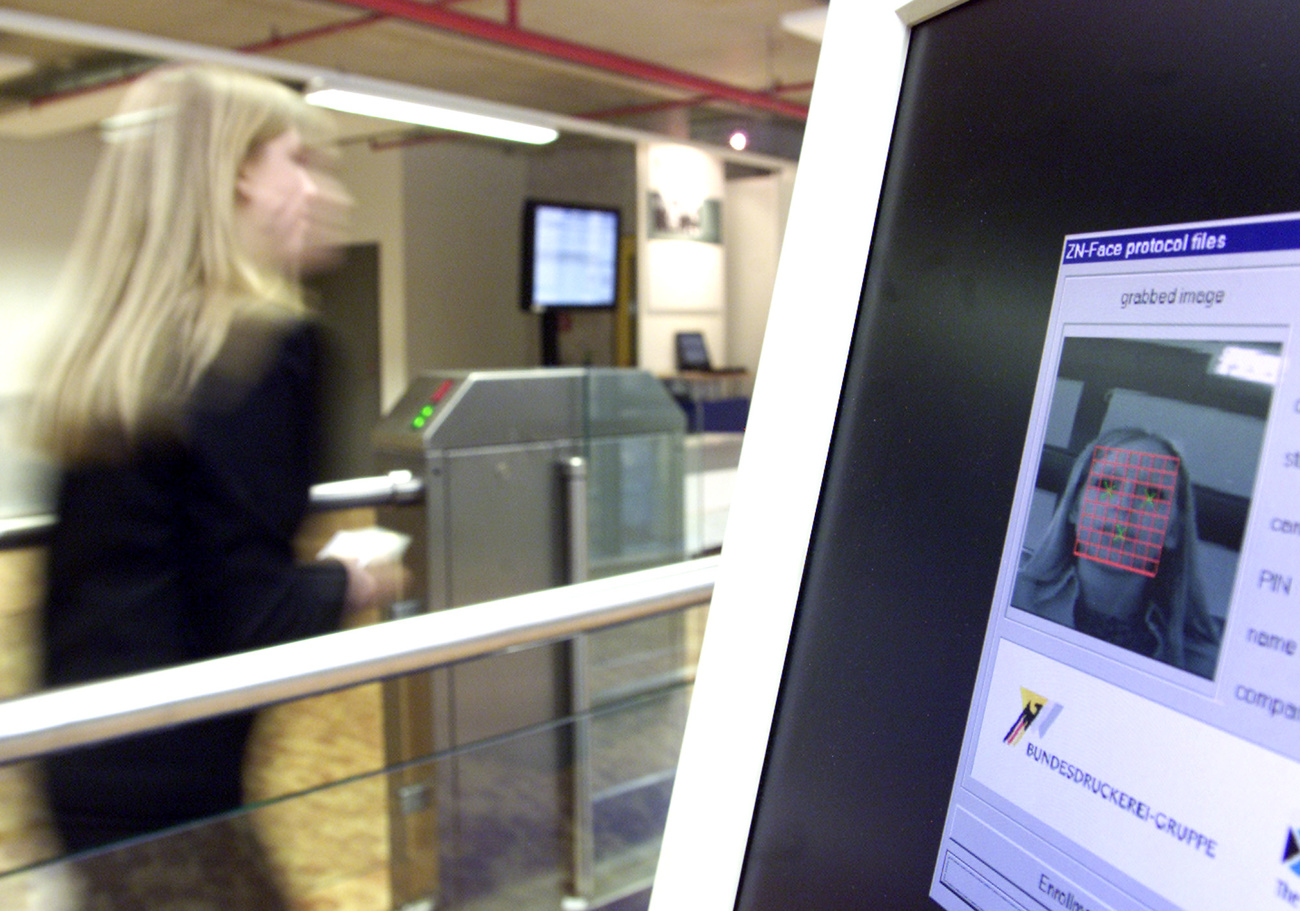
Swiss petition takes aim at face recognition

Civil society groups have called for a ban on automatic face recognition devices and video surveillance technology in Switzerland.
Three organisations, including the Swiss chapter of Amnesty InternationalExternal link, said a combination of both tools was highly problematic.
“It ignores a massive infringement of basic rights of the whole population,” a joint statement said on Thursday.
The groups said there is a real risk that the use of the surveillance technology will spread fast across Europe and that the Swiss authorities will soon approve the legal basis in the country.
Some police forces already apply the controversial face recognition tools, the NGOs claim.
“This is a worrying step towards a comprehensive and permanent system of mass surveillance. The target are not only criminals but the entire population,” said Erik Schönenberger of the Digital SocietyExternal link.
The installation of video cameras in public places continues to be a hotly debated issue. Supporters of the technology argue electronic surveillance can help ensure security.

In compliance with the JTI standards
More: SWI swissinfo.ch certified by the Journalism Trust Initiative






























You can find an overview of ongoing debates with our journalists here . Please join us!
If you want to start a conversation about a topic raised in this article or want to report factual errors, email us at english@swissinfo.ch.